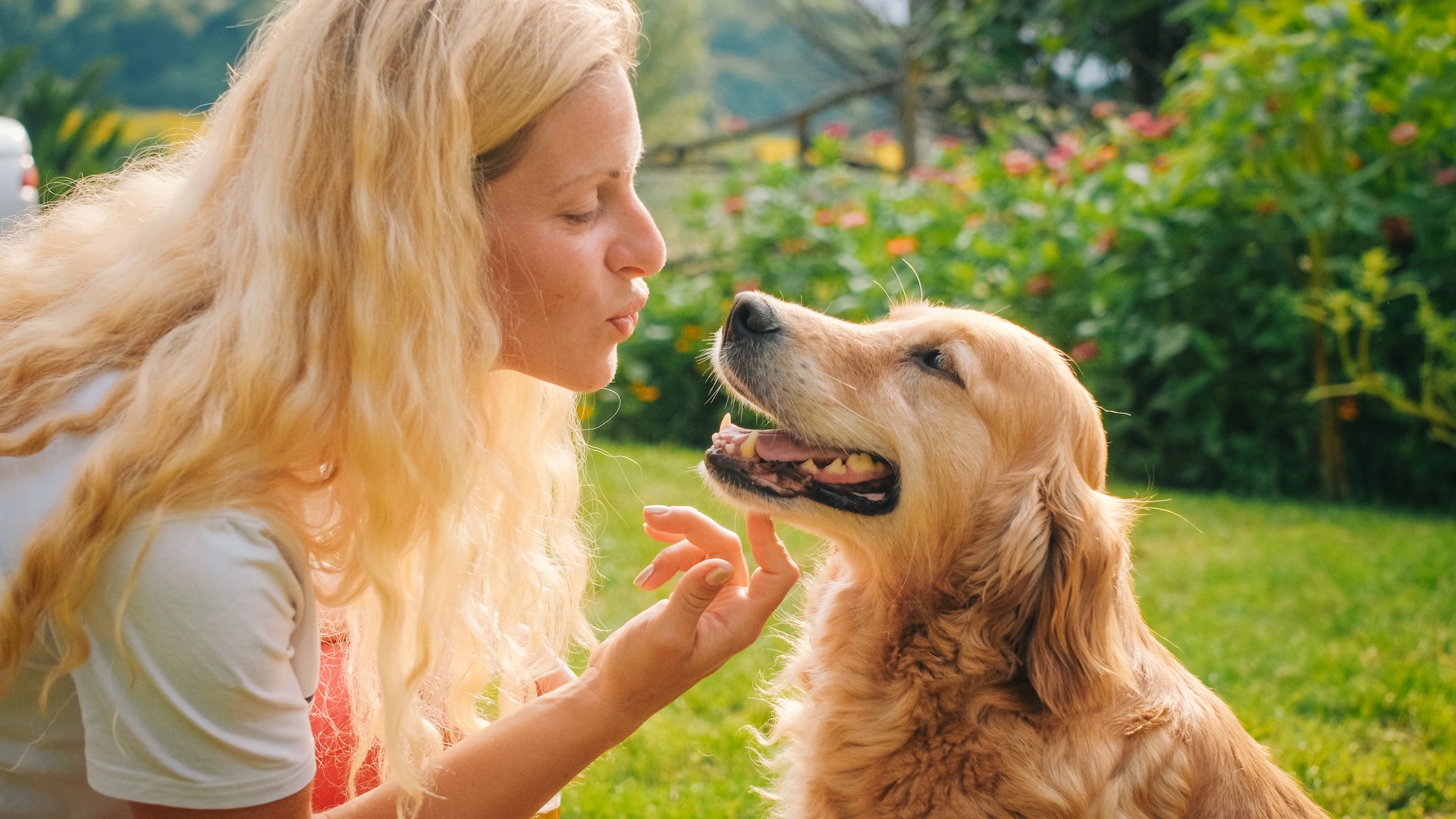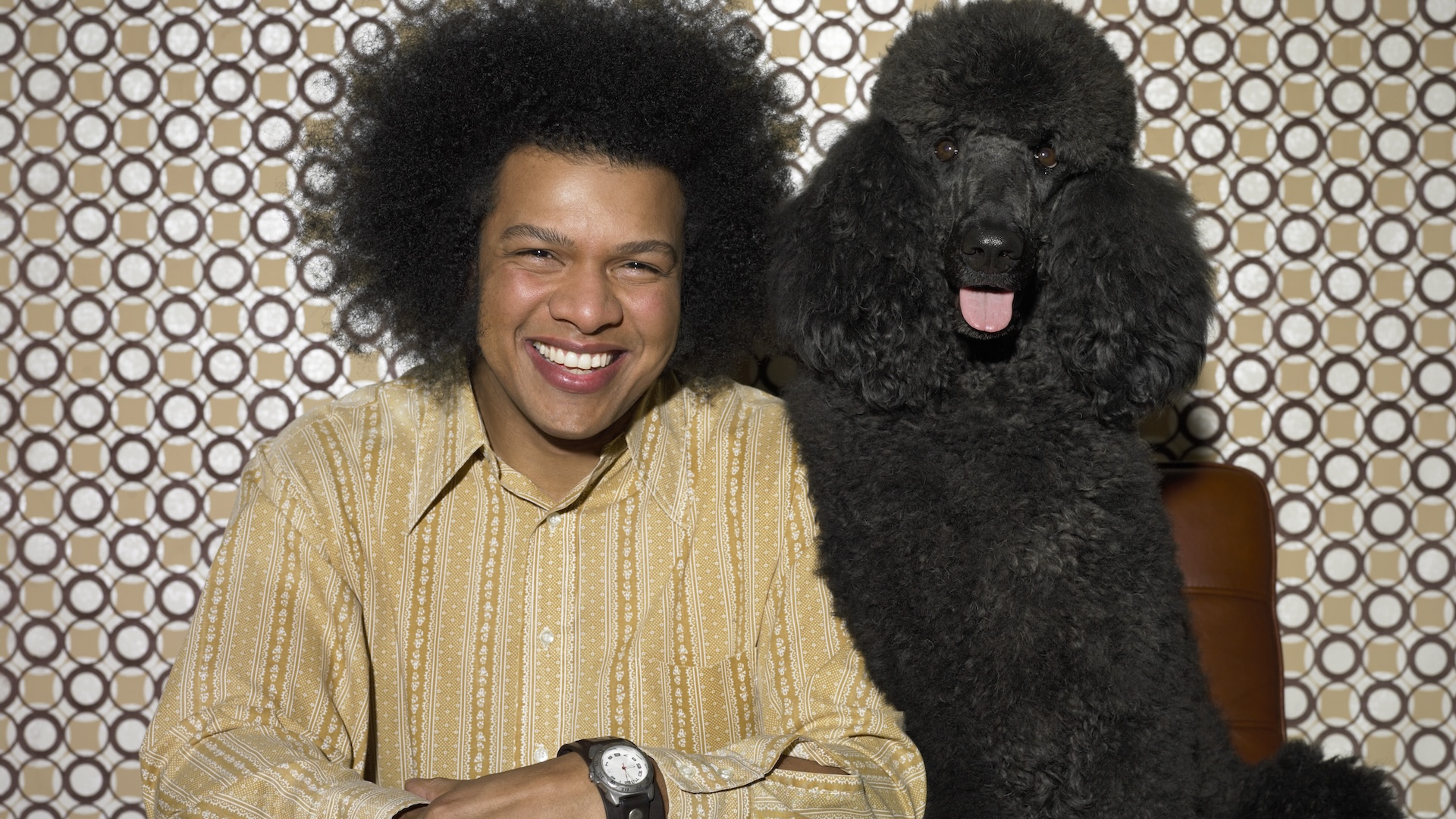
Why do dogs look like their owners?
When a dog looks strikingly like its owner, is that a coincidence or is there more to the story?

Visit any dog park, and you're bound to see matching pairs of dogs and humans. But do dogs really tend to look like their owners? And, if so, what's responsible for this resemblance?
"Whilst not a universal phenomenon amongst all owners and dogs, there is some evidence that purebred dogs and owners tend to resemble each other at some level," Katrina Holland, a research officer on the human behavior team at Dogs Trust, an animal welfare charity in the U.K., told Live Science in an email.
Several studies have found that people can successfully match pictures of purebred dogs with pictures of their owners at levels above random chance. In one study, participants were able to match dogs with their owners regardless of whether they were told to choose the real dog-owner pairs or just choose pairs that looked alike. This finding suggests that it's physical appearance, and not some other element, that people are using to make these judgments.
Certain aspects of physical appearance are more important than others. Facial features, especially the eyes, are more integral to the perception of resemblance than qualities such as size, hairstyle and physical fitness, a different 2015 study found. When a researcher showed participants real and fake dog-owner pairs while masking different parts of the dogs' and owners' facial features, the participants were equally successful at matching when they saw only the eye region as when they saw the full face or the face with the mouth covered. But when they masked the eye region, the participants' success rate dropped to 50-50.
So if it's true that dogs tend to look like their owners, why is this? Do we choose dogs that look like us, or do our dogs start to look more like us over time?
Related: Could dogs survive without humans?
Research suggests it's probably the former, Holland said.
Sign up for the Live Science daily newsletter now
Get the world’s most fascinating discoveries delivered straight to your inbox.
For example, a 2004 study found that how long a person had owned their dog wasn't correlated with their resemblance; participants were just as successful at picking out the dog-owner pairs regardless of how long those pairs had been together. That suggests that people are choosing dogs that look like them at the outset.

One hypothesis is that people tend to seek out people, including mates, who look like them, Holland said. Researchers have suggested that the same thing happens when people choose their pets.
"Alternatively, it may be that we prefer dogs who look somewhat similar to us due to the 'mere exposure effect,' in which people prefer familiar items (i.e., their own faces, seen frequently through mirror exposure) over those they have not seen before or seen less often," Holland said.
A familiar example of the mere exposure effect happens with music: A song that you didn't like much the first time you heard it becomes irresistible after it's on the radio all summer. People see their own face constantly, so that repeated exposure leads them to prefer faces that look like their own, including in dogs.
It's not just appearance, either. "Findings from a recent study indicate that dogs and their owners resemble each other in the 'Big Five' personality dimensions": extraversion, agreeableness, openness, conscientiousness and neuroticism, Holland said. These findings also support the idea that we select pets that are similar to us, she said — not just those that look like us, but those that act like us, too.
Of course, a dog's similarity to us isn't the only thing to think about when choosing a pet. "Taking your time to fully consider all aspects of dog ownership and being prepared will help set you up for a lifelong, successful relationship with your new dog, Holland said." But after those considerations, there's nothing wrong with picking out a cute canine twin to hit the dog park with.

Ashley Hamer is a contributing writer for Live Science who has written about everything from space and quantum physics to health and psychology. She's the host of the podcast Taboo Science and the former host of Curiosity Daily from Discovery. She has also written for the YouTube channels SciShow and It's Okay to Be Smart. With a master's degree in jazz saxophone from the University of North Texas, Ashley has an unconventional background that gives her science writing a unique perspective and an outsider's point of view.










